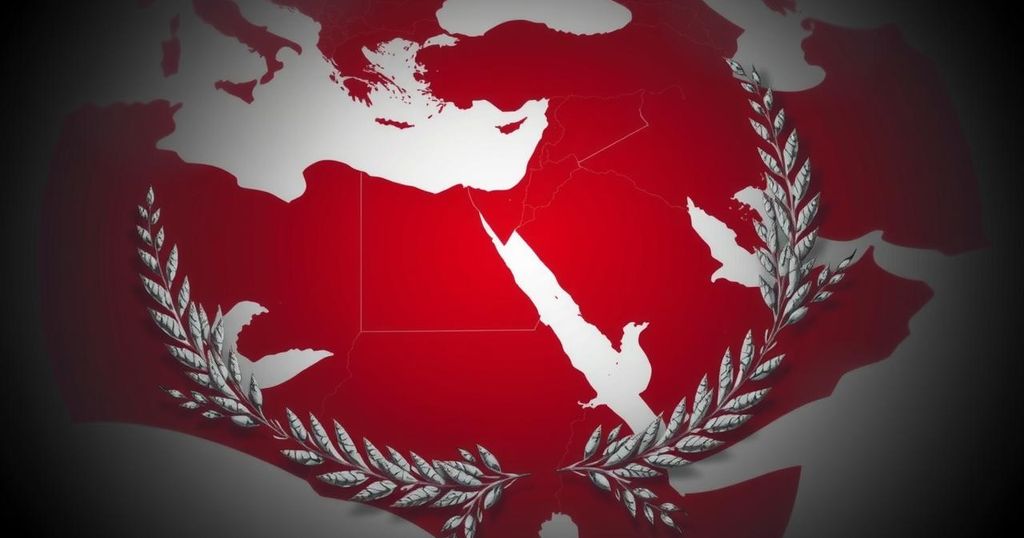Yemeni Government Calls for Action Against Houthis Amid Iran’s Weakness

Aidarus al-Zoubaidi urges the West to target the weakened Houthi leadership in Yemen, advocating for coordinated military operations alongside ground forces. He calls for the Houthis to be designated as terrorists and criticizes current U.S. actions as ineffective due to lack of focus on key targets. His comments underscore a desire for a stronger military response amid Iran’s vulnerabilities. There’s an indication that the Yemeni government is open to intelligence sharing, highlighting a potential shift in alliances.
Aidarus al-Zoubaidi, vice-president of the UN-backed government in Aden, has urged Western powers to capitalize on Iran’s current vulnerability by taking action against the Houthis in Yemen. He articulated that Iran’s recent challenges in Lebanon, Syria, and Gaza have significantly weakened its position, leaving Yemen as its sole domain of influence. “Now is the time to counter the Houthis and push them back into their position,” Zoubaidi stated in an interview with the Guardian.
Zoubaidi emphasized the necessity for ground forces in Yemen to coordinate closely with Western airstrikes in a comprehensive strategy against the Houthis. He invited the new U.S. administration to designate the Houthis as a foreign terrorist organization, commending former President Donald Trump for his decisive leadership. This indicates an intention from Yemen’s Presidential Leadership Council to exploit Iran’s weakened state and pursue a joint military offensive against the Houthis, potentially involving ground troops.
He forecasts that while Iran may strengthen its backing of the Houthis as a critical element of its regional influence, it is an opportune time for Yemeni forces to intensify their efforts against them. Zoubaidi declared, “This is the right time for us also to double time and push them to the maximum.” Despite Iranian claims that the Houthis act independently, he remains skeptical of their autonomy.
Furthermore, Zoubaidi noted that the Aden government is prepared to share intelligence and provide assistance to all entities conducting operations against Houthi targets, suggesting a willingness to collaborate with various forces, potentially including Israel. However, he criticized the effectiveness of U.S. and U.K. strikes, arguing these have failed to focus on Houthi leadership and primary strongholds, resulting in an ineffective response by not combining airstrikes with ground operations.
Recent U.S. military actions have been primarily intended to deter Houthi assaults on commercial shipping in the Red Sea. The Houthis assert that their maritime attacks were acts of solidarity with Palestinians in Gaza. Houthi leader Abdul-Malik al-Houthi announced they would refrain from targeting commercial vessels linked to Britain or the U.S. during a temporary ceasefire pertaining to Gaza.
Zoubaidi expressed concern that Houthi societal support structures differ from those of groups like Hezbollah and Hamas, necessitating a more nuanced approach than merely targeting leadership figures. He also criticized the Biden administration’s diminished assertiveness, particularly the decision to downgrade the Houthis’ designation from foreign terrorists, which he describes as having provided them greater operational latitude.
The ongoing conflict in Yemen has been largely influenced by the Houthi movement, which has intimate ties to Iran. The Houthis have controlled the capital, Sana’a, since 2014, establishing their authority amidst a protracted civil war. Aidarus al-Zoubaidi represents the UN-backed Yemeni government, asserting that Iran’s influence is crucial in the Houthi dynamics. Presently, the geopolitical landscape appears to have shifted, allowing for proactivity against the Houthis, particularly in light of Iran’s challenges in other regions.
Aidarus al-Zoubaidi’s statements signify a pivot towards a more aggressive military stance against the Houthis, leveraging Iran’s vulnerabilities. His call for Western intervention, coupled with an emphasis on coordinated military efforts, underscores a significant shift in strategy aimed at securing Yemeni territory. The lack of cohesive attacks on Houthi leadership highlights the complexity of the conflict, necessitating a multi-faceted military approach to achieve lasting peace in the region.
Original Source: www.theguardian.com








